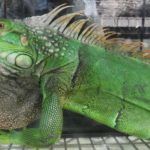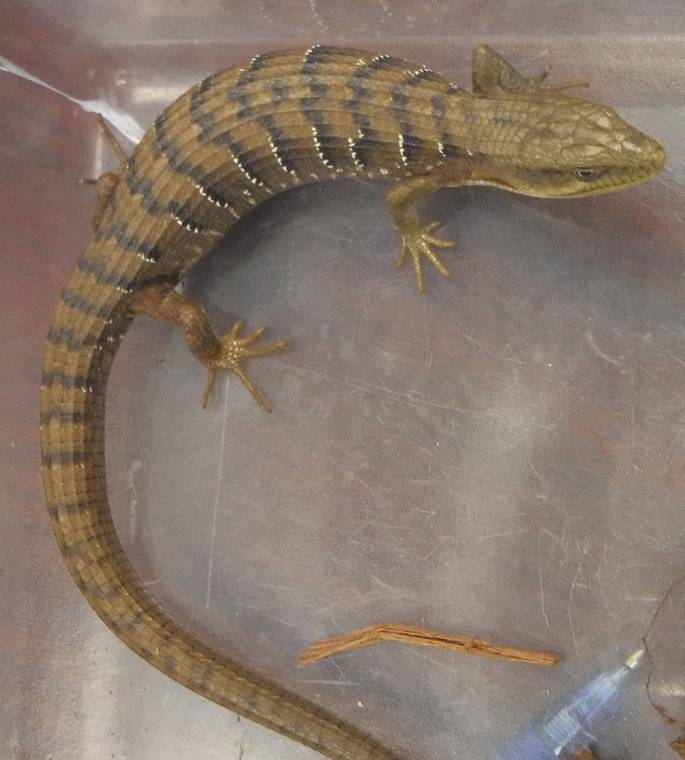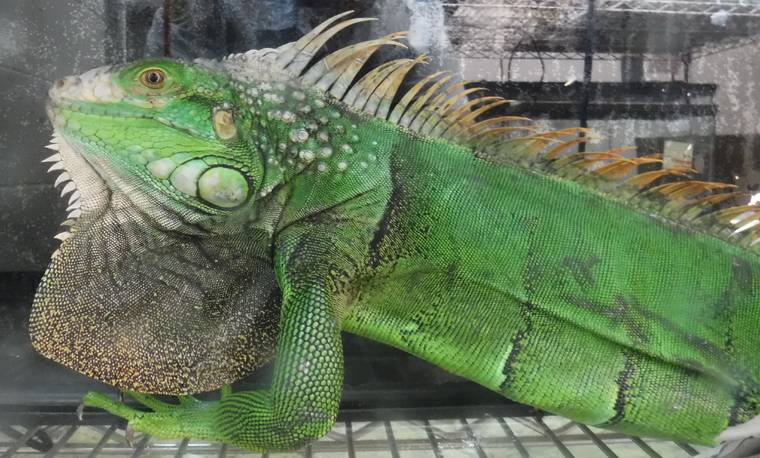A Hilo resident bought a Christmas tree that appears to have come with an unexpected “ornament.”
The man was transporting the tree on the rack of his vehicle over the weekend, according to the state Department of Agriculture. When he arrived home, he spotted a large lizard on top of the tree.
He was able to capture it and reported the animal to the state’s pest hotline, 643-PEST (7378).
Plant quarantine inspectors from the DOA picked up the foot-long lizard Monday morning. Reptile experts at the Honolulu Zoo and the Pana‘ewa Rainforest Zoo have identified the lizard as a southern alligator lizard.
DOA inspectors have traced the origin of the Christmas tree to a shipment from Washington State and conducted follow-up inspections of the remaining Christmas trees from that shipment.
No evidence of other alligator lizards was found.
Arrangements are currently being made to allow the Pana‘ewa Rainforest Zoo to temporarily safeguard the lizard under quarantine conditions for educational purposes.
Southern alligator lizards (Elgaria multicarinata) are native to the U.S. and Mexico and can grow up to 2 feet in length. Their diet includes various insects, spiders, snails and other lizards.
In a similar incident, on Monday morning Oahu plant quarantine inspectors were notified by Honolulu police about a green iguana that was spotted in a tree at a residence in Waimanalo. Inspectors were immediately dispatched and captured the green iguana, which is approximately 4-5 feet long.
When fully grown, green iguanas may reach up to 6 feet in length from head to tip of tail. The tail is quite powerful, acting as a dangerous weapon in fending off enemies.
Green iguanas (Iguana iguana) are native to central Mexico through South America and are typically vegetarians, but are known to disturb bird nestlings and feed on eggs, according to the DOA.
Although they are found on Oahu, it is illegal to import, possess or transport iguanas in Hawaii.
Anyone with information on illegal animals should call the state’s toll-free pest hotline at 643-PEST (7378).
Individuals who have illegal animals are encouraged to turn them in under the state’s amnesty program, which provides immunity from prosecution. Illegal animals may be turned in to any DOA office, municipal zoo or Humane Society; no questions asked and no fines assessed.









